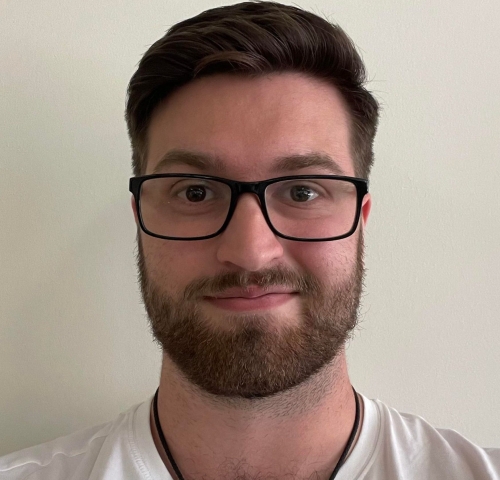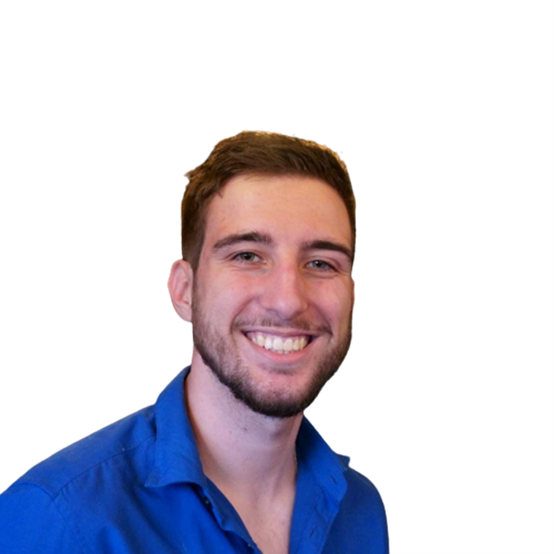
Jayden Gregory Rodda
University of South Australia
I am an honours student at University of South Australia, centred at Mawson Lakes, Adelaide. I started my honours in mid-2022, expecting to be completed by mid 2023. In 2022, I had completed my Bachelor of Mathematics, majoring in Industrial and Applied Mathematics. During that time, I got to work in a group project at Math Clinic with the Australian Defence Science and Technology Group (DSTG). We helped develop a methodology that can create models to best optimise the positioning of military assets in order to best defend against aerial attack. I hope to go work for DSTG in the future and help on all sorts of the other amazing, fun and interesting problems that they would have. Later within 2023, I will be beginning a part-time cadetship with the Defence force for the Capability Acquisition and Sustainment Group (CASG) as well as beginning a Masters within Applied Mathematics or Data Science.
Can you give me a quick rundown about the type of mathematics you are studying and its potential impacts for the broader community?
I am in the development of a methodology for Semantic Scene Completion (SSC). This is the process of taking an incomplete scanned 3D scene and completing the objects through machine learning algorithms. It’s done by first identifying what particular objects are in the scene, and reconstructing the partial scan as a full complete object knowing what it is. For example, a LiDAR scan (depth map) of an average kitchen table may only present within the image the table top, and two or three of the table’s legs. SSC would take that LiDAR scan, try to determine what objects are within the scan through machine learning. After it has determined the object is a table, knowing what other tables look like, it knows that it should have a mostly rectangle table top with 4 legs underneath. To where it will recreate the original scene now with the completed 3D objects of the scenery. This research is what has been used to help with robotic navigation like self-driving cars. It also has applications within digital restoration and simulation construction.
How did you get into mathematics/statistics/data science? Was there someone or something that inspired you to this field?
When I was younger, I always had a great interest in mathematics, computers and science. I had a great talent for it all and really enjoyed problem solving. I wanted to be able to see where my mathematical skills could get me moving forward, and with the help of my family, we all pushed me to go into industry or education. Where I started university and have been thoroughly enjoying my degree ever since (not including its fair amount of stress). However, I never really knew what I wanted to do after I completed it. I knew data scientists were all the craze, but I never enjoyed statistics at all and wanted to pursue the “freaking” mathematics (that my family refers to it too) that I thoroughly enjoy. Then one year, I found myself within Math Clinic, the Australian Defence force. The projects that they were working on were right up my alley of problem solving and interest. I found myself instantly drawn to wanting to work in industry for either contract work or directly under the defence. Helping create models, define formulas, or generate solutions to unorthodox problems. That’s why I wish to continue working in applied mathematical studies.
You received a Travel Grant to attend AMSI Summer School 2023. How important was this in terms of your ability to attend, fully participate in the program and meet others studying in similar fields?
Unbelievably important. There is something just completely different about being capable of interacting with peers and the lecturers immediately, compared to online with a screen and distance barrier. The greatest advantage was that immediate response to questions, being able to ask about the material and get a response straightaway afterwards is invaluable to a flowing classroom as well as learning potential. Being able to meet many others that shared your interest was an uplifting sight to see, as you sometimes never truly know how many others enjoy the things that you do.
What was the most valuable part of the program for you?
The most valuable part to me about this program was establishing connections, for both my career and social life. Discovering what other individuals are studying, what projects they are involved in, and learning about new areas of research. Just allows you to see different subjects in a new light, and a fresh perspective about your own research. Making new friends that could both share your interests and assist with problems, is something that I have truly treasured from this program. But it’s not only just friends, but the connections to the industries and workforce. I was fortunate enough to get in contact with a member of the Australian Defence force, who I have always wanted to be a part of. Thanks to that, I now have a clearer goal, know what to aim for to achieve my desired career and have someone who can help me in need.
In the long-term, what do you think are the benefits of having attended Summer School?
Realizing the importance and benefits of my field of study, as well as the subjects that I studied. This Summer School has allowed me the chance to create friends that could last for a long time. The connections you can make will last for a longer time to come. The amount of information available as well as learning opportunities that were presented were greatly inspiring. I wish I can go again another year.
Summer School included a special Careers Day program which aims to help give students an idea of the kinds of career paths available to maths graduates in industry and private sector research areas. Were you previously aware of the types of industry opportunities available to mathematical science graduates?
Many of the available pathways presented to us were ones that I never expected. It was greatly surprising to see how many applicable areas certain mathematics backgrounds can get you into. Industry has always been my main goal and seeing that I have practically limitless options is very reassuring. Not also to mention the accessibility of these industry jobs, most offering relocation scholarships as well as online compatibility. There was a field for everyone and an interest to fill for each.
What advice would you give to someone who is considering applying for Summer School in 2024? Should they apply and why?
This is an opportunity that you would always remember. Whether for travel, connections or learning, it will be a forever lasting experience. Any advice I would give however, is to be prepared! It is not a simple cake walk unless you already knew the content beforehand. Remember it’s basically an entire semester’s worth of study, bookwork, assignments, and quizzes all in just 4 weeks. Be sure to be prepared and don’t be afraid to ask for any help you need. I needed a lot of help with this Summer School as I wasn’t used to the fast-paced workload. But when I asked for help, both the lecturers and organizers were more than willing to help accommodate my needs to try and make it much less stressful.
Where do you want the mathematical sciences to take you? Where do you see yourself in five, ten years’ time?
I hope to be working within industry. Taking me to help solve important problems that will better people’s lives or my countries. Doesn’t even need to be with the Defence force, I just want to be able to continue solving complex problems with all the joy I still do today that may help anyone.

